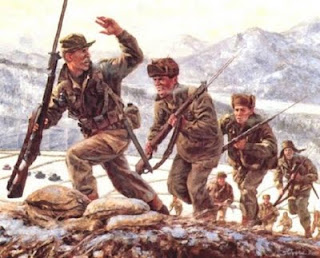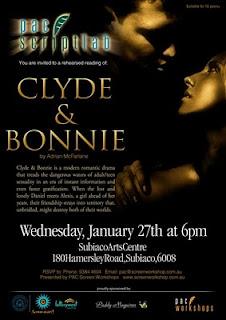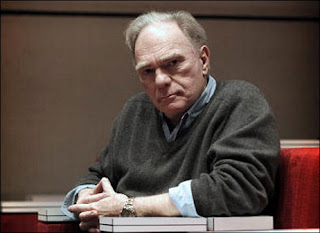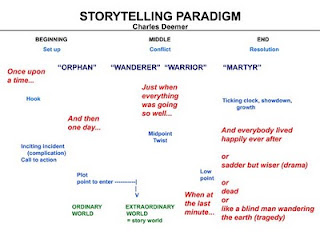Before you all mutter, "I thought you weren't going to espouse screenwriting theory in your blog, Richard" (as discussed here), let me preface my remarks.
One of my favourite movies is Amadeus. Wonderful performances, great story and the glorious music of a bona fide genius. Plus those [insert gushing adjective here] set piece scenes from Mozart's operas - the ballet from The Marriage of Figaro, Don Giovanni, The Magic Flute - all used as integral parts of the story - respectively, the politics between the Italians, Mozart and the Emperor; the catalyst for Salieri's terrible plan when he sees Mozart haunted from the grave by his father; Mozart's descent into madness and ill health.
The Red Bride incorporates Chinese culture and mythology ... sooooooo ... why not sneak in a funky east meets west homage to one of my favourite movies by including a little Chinese opera? There's even a lovely visual - the first few rows are left vacant during the Hungry Ghost Festival so that the spirits can enjoy the show. Add some texture by staging an opera sequence that reflects the narrative and you have a nice filmic moment that adds colour and spice, right?
 Yes! ... except the director, Chris, HATES the idea.
Yes! ... except the director, Chris, HATES the idea. Now, one of the things I love about writing is the collaborative stuff - story meetings, brainstorming, long creative sessions with whiteboards and coffee. But at the end of the day there needs to be a consensus.
Of course, this didn't stop me from dropping in "the Chinese Opera sequence" in every draft, moving it around, typically in the second act and hoping it would "get past the keeper" (to use an Australian expression).
But Chris would hone in on it every time like a cruise missile in a target rich environment. We'd "debate", I'd lose, on to the next pass. I'd sneak it back in, he'd brandish the metaphorical red pen, on to the next clandestine attempt and so on ...
It has now dropped out of the script but it is a long-standing joke between us (I'm sure, to the producers' bemusement). This has all been done in an amiable way. Why? It does not impact the narrative spine. Some of you will ask, why bother? To me it's a moment to let the film breathe in a way that is visually interesting and culturally relevant. Chris is strict about not wanting to, as he terms it, "exotic-ise" the cultural aspects.
So The Chinese Opera Principle is my code for the necessary compromises you make as part of a collaborative medium. I'm lucky in many ways, as I have Chris, Jocelyn and David to bounce off and incorporate their views during the drafting process. However, if it had been an issue that I thought damaged the narrative spine then I would "go into bat" (another Aussie phrase). But as most screenwriters know - you need to pick your battles carefully ...







